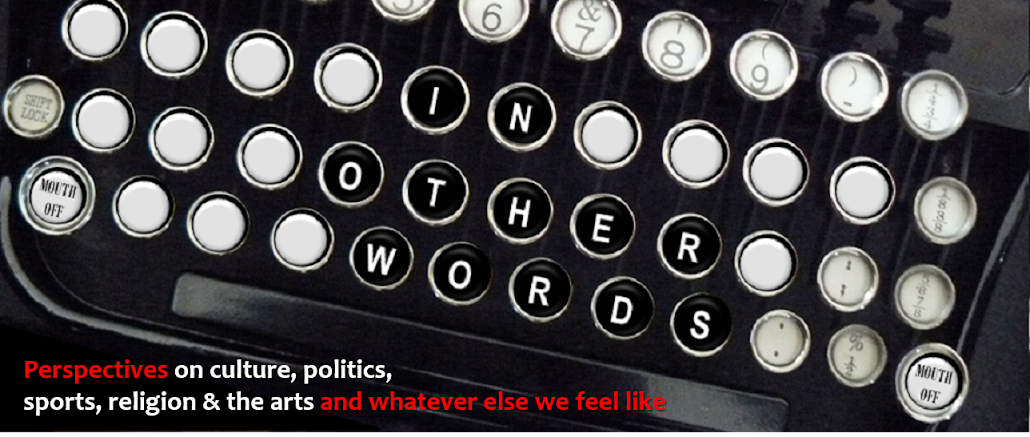By Drew
The online issue of The New Criterion has a very interesting article by Anthony Daniels, "Blood and Smashed Glass," on dystopian (end-of-the-world, post-apocalyptic, what have you) novels. As Daniels notes, the best of these dystopian novels tend to be from Britain, and back in February I wrote about one of the best and most affecting, On the Beach.
Of the recent novels in the genre, Daniels focuses on J. G. Ballard’s Kingdom Come. (You might recognize Ballard as the author of Empire of the Sun, which was made into a movie by Steven Spielberg.) In Kingdom Come, Ballard writes of a bleak, spiritually empty Britain, where “the ‘spiritual’ focus of life here is the shopping mall, the airport, and the filling station.” In many ways more terrifying than the regressive, post-nuclear worlds we often read about, Ballard describes the not-too-distant future:
They [the inhabitants] lived in an eternal retail present, where the deepest moral decisions concerned the purchase of a refrigerator or a washing machine.
Parking was well on the way to becoming the British population’s greatest spiritual need.
Here, a filling station beside a dual carriageway enshrined a deeper sense of community than any church or chapel, a greater awareness of a shared culture than a library or municipal gallery could offer.
Consumerism dominated the lives of the people, who looked as if they were shopping whatever they were doing.
As Daniels notes, such a life can be deeply unsatisfying. Nationalism (or Balkanization of the culture, if you will), aggressiveness, and violence work to fill the gap, but so does the Oprafied, emotions-on-the-sleeve sentimental mush we seem to crave. In Britain, these contradictory elements are symbolized by the teddy bear for the sentimentality, the English flag for the brutality, both of which, Daniels says, “[serve] to make the country an increasingly civilization-free zone.”
Whenever there is a fatal accident, or a fatal stabbing or shooting, in an English city, teddy bears soon appear at the site, often strapped to the nearest lamppost. They are the lightning conductors of disturbing thoughts and emotions, discharging them harmlessly into the ground. They serve the purposes of shallowness and intensity at the same time; they are the tribute that egotism pays to sympathy. That is why, as Ballard so acutely perceives, they play so large a part in modern English life.
As for the flag, which only a handful of years ago was scarcely ever seen, and then only in the hands of people with the crudest xenophobic sentiments, it is now to be found everywhere. One of Mr. Blair’s greatest achievements, so far unheralded, is the near certain destruction of the 300-year-old union of Scotland and England, with the very real possibility of the emergence once again of destructive hostility. English nationalists will soon find real reasons to hate the Scots, for example because of the vast subsidies they have so thanklessly received for decades; the Scots, suddenly deprived of those subsidies, will find one more reason to loathe the English.
I don’t imagine we recognize much of our own culture in this, do we? Anyway, if you have a strong stomach and some antidepressants nearby, you might want to check this out.
If I haven’t already gotten you down by now, let me mention one additional element form Daniels’ article. In fact, it was the piece that fairly leapt off the page when I read it, for in it I saw the greatest parallel to our own time and culture. Oddly enough, it comes from one of the older of the dystopian novels, E.M. Forster’s The Machine Stops, published in 1909. The Machine Stops tells of a world where “mankind has become entirely subterranean, living isolated lives in temperature-controlled cells where everything is available at the push of a button and all human contact is second-hand, via electronic communication apparatus. First-hand experience of anything except the cell in which one lives is feared and avoided by everyone.”
I read this and I thought, “Internet. Email. MySpace. Virtual reality. Avatars. Self-absorption, the elimination of risk, the decay of neighborhoods. It’s all there, isn’t it. And he wrote this 100 years ago.”
If it’s uncomfortable having a mirror held up to us, if we squirm at the image we see reflected in its glass, we should also be grateful that we’ve been given this looking glass in which we can get a glimpse of what life has become. Of course, the hard part is to do something about it, as we must, before the looking glass turns into the picture of Dorian Gray.




